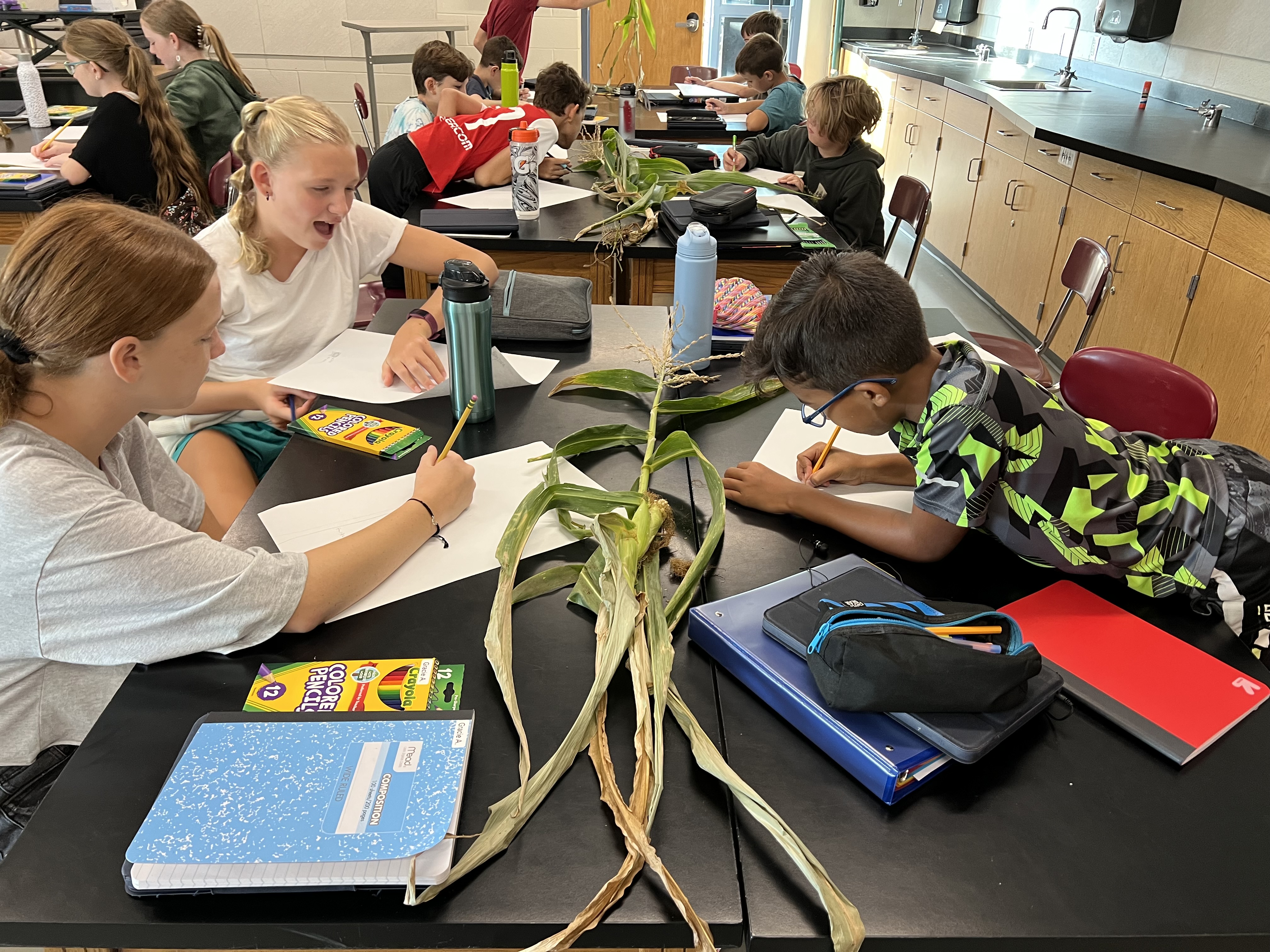Kansas Corn STEM Provides Free Educational Supplies for Teachers

When Kansas Corn STEM first began providing free educational resources and supplies for Kansas teachers in 2016, they could never have guessed how far their reach would grow. What started with 20 high school teachers has expanded to 2,613 educators from a wide range of grade levels during the 2022-2023 school year alone.
Funded by the Kansas Corn Commission, Kansas Corn STEM set out to educate students about the corn industry, including topics like corn production, ethanol and GMOs. The commission is made up of Kansas corn farmers and receives one cent for every bushel of corn sold in the state. The farmers then decide how the funds will be allocated for industry growth, such as market development or research and educational programs like Kansas Corn STEM.
Ag Education for Kansas Kids

“I can talk to a group of 20 high school kids about careers in ag, but I'm only going to make an impression during those 45 minutes or an hour. Whereas if you impact a teacher who continually teaches those lessons, they're going to impact more students over time. And honestly, teachers are the ones that students trust.”
Kansas Corn STEM creates and ships free education kits across the state, including books, lessons, labs and supplies designed for classrooms from pre-K through high school as well as resources for homeschool educators. The program prides itself on having unique offerings in every resource area, so educators can choose what lessons work best for them and their students.
Although the programs’ free supplies may sound too good to be true, Kansas Corn STEM is transparent about its goals. On behalf of the state’s corn farmers, they hope to inform students about how the ag industry affects their daily lives via its contributions to the Kansas and U.S. economy, the price of food at the grocery store and their own personal nutrition. But rather than telling students what they should think about agriculture, the inquiry-based lessons and labs teach them to ask questions about corn production and take active steps with the help of their teacher to find the answers.
“We're providing a lab for them so that they can make their own decisions and have those good discussions in the classroom,” Dr. Thielen explained. “We just want to make sure that we are providing those labs that allow those kids to have good, positive conversations, looking at the pros and cons about these topics.”
The number of these conversations continues to grow across the state. Between August 1, 2022, and May 12, 2023, these programs were present in 173 schools and reached over 100,000 students throughout Kansas.
Continued Support for Teachers
Most of Kansas Corn STEM’s advertising comes from word of mouth from teachers who have previously used their resources. Teachers who use these materials each year are asked to join the teacher advisory board. In addition to being compensated for their time outside of the classroom, these educators can share their expertise to shape the programs’ future educational initiatives.
For teachers new to these programs, Seed to STEM — a popular program for grade 6-12 teachers in science and ag — offers a two-day workshop with labs, a farm visit and an ethanol plant tour. At the end of their experience, the program aims to offer continued support for each teacher, providing each with $500 of lab equipment, additional distillation kits as needed and the opportunity to apply for a yearly mini grant to use in their classrooms.
Whether a teacher has little to no background in ag education or years of experience under their belt, Kansas Corn STEM’s resources cater to varying levels of expertise. If you’d like to request information about bringing the program to your students, visit the Kansas Corn website.



